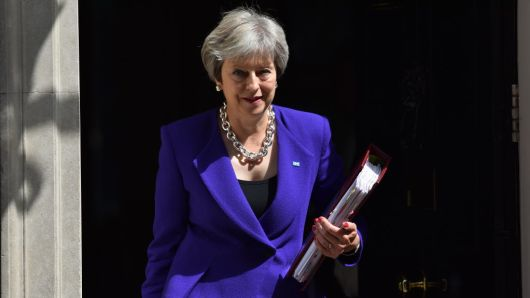British Prime Minister Theresa May will on Monday defend her draft Brexit deal to business leaders ahead of “intense negotiations” with Brussels in the coming week.
May will tell the Confederation of British Industry, the UK’s main business lobby group, that she is confident of striking a deal at the European Council in the run-up to Sunday’s summit to sign Britain’s divorce papers.
“During that time I expect us to hammer out the full and final details of the framework that will underpin our future relationship,” she will say, according to Downing Street.
“I am confident that we can strike a deal at the Council that I can take back to the House of Commons.”
The embattled premier, whose cabinet grudgingly approved her EU divorce draft last week, faces an uphill challenge to pass her deal through a sceptical parliament.
The Brussels negotiations will finalise a parallel political declaration setting out a road-map for post-Brexit negotiations on future EU-UK ties.
She will also tell the CBI gathering that her deal will deliver on the issues that matter to the British people.
“Control over our borders, by bringing an end to free movement, once and for all.
“Control of our money, so we can decide for ourselves how to spend it.
“Control of our laws, by ending the jurisdiction of the European Court of Justice in the United Kingdom and ensuring that our laws are made and enforced here in this country.”
The CBI said on Sunday that May’s draft deal was not perfect but a compromise that “takes no deal off the table” and opens the path to frictionless trade in the future.
Addressing the issue of immigration, a concern for many businesses who fear they will face skills gaps after Brexit, May will promise to introduce “more streamlined application processes” that will “attract the brightest and the best from around the world”.
“But the difference will be this: once we have left the EU, we will be fully in control of who comes here,” she will say.
“It will no longer be the case that EU nationals, regardless of the skills or experience they have to offer, can jump the queue ahead of engineers from Sydney or software developers from Delhi.”













